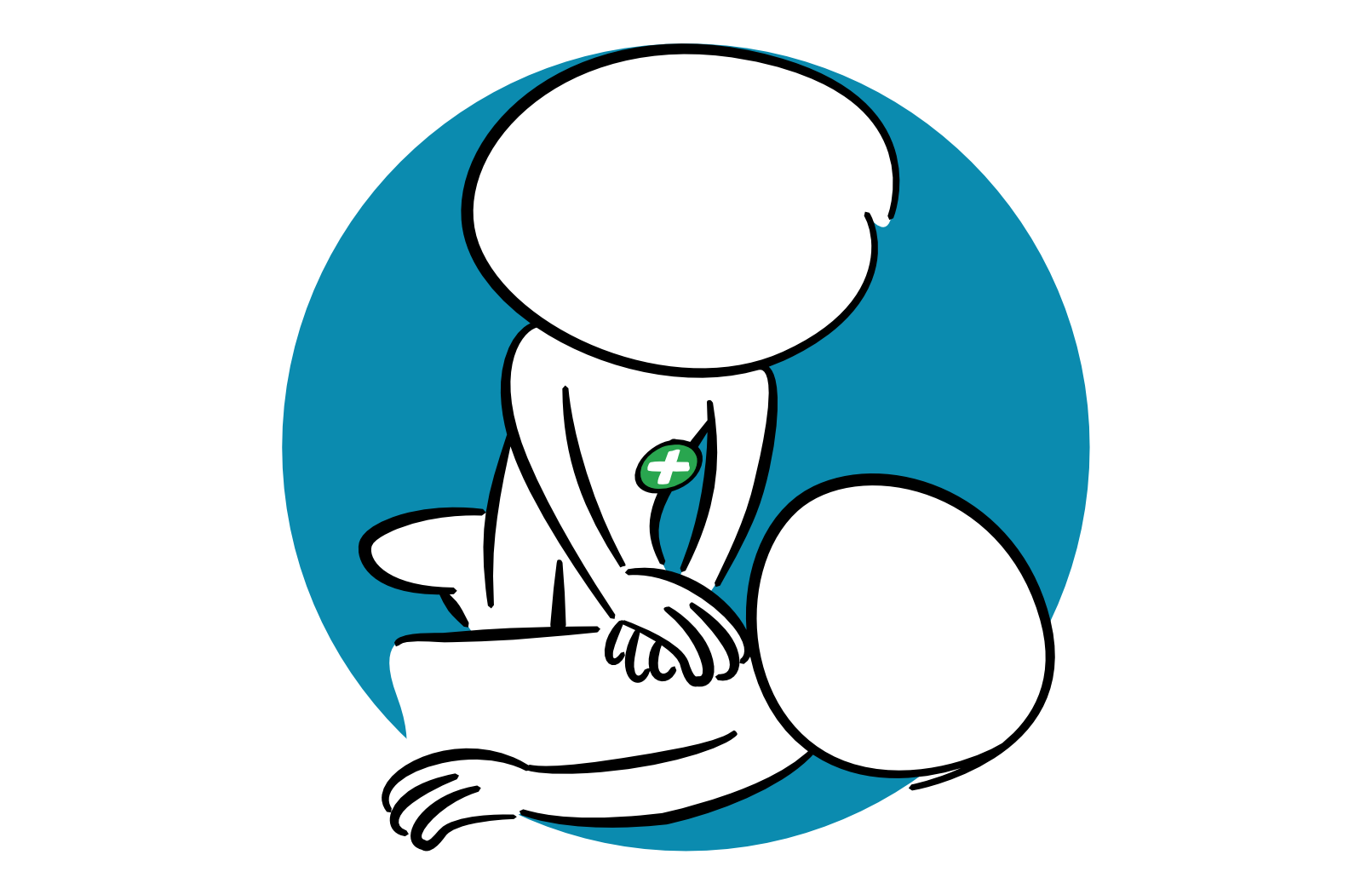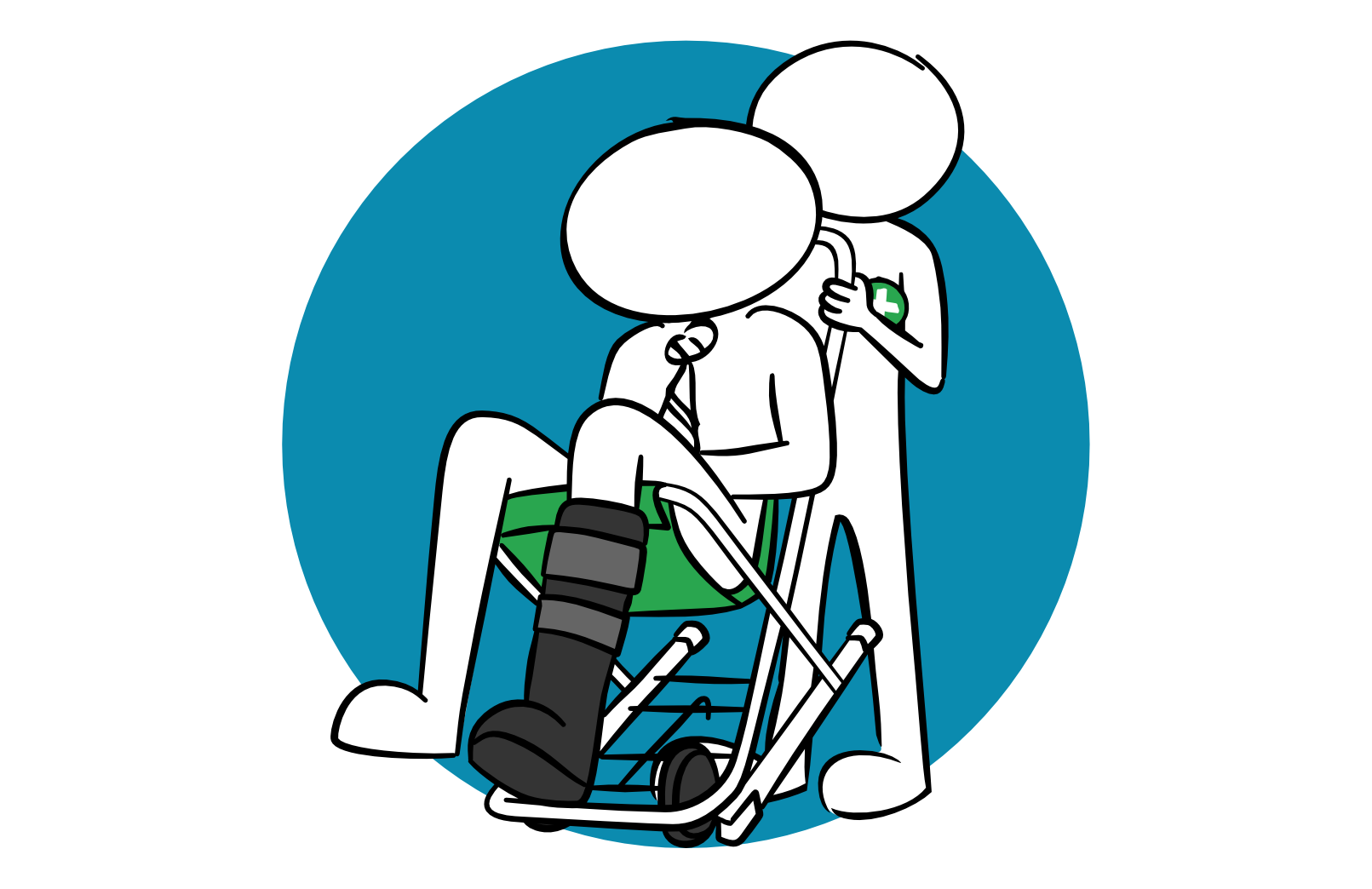Calculating your first aid cover can seem like a daunting task but fear not! Help First Aid Training is here to offer guidance that will soon have you ticking all of your first aid health and safety boxes.
Where do I start?
No-one can forsee every eventuality when it comes to accidents. It’s all about looking at your business, doing what you can to minimise any potential risks and having the procedures in place to deal with an accident or emergency, should it happen. Although there are no hard and fast rules to help you with your decision, we advise visiting the Health and Safety Executive website, www.hse.gov.uk for further advice and spending some time thinking about the following factors;
Your business; This is a very important factor when deciding your first aid requirements. Logic tells us that an industrial firm, dealing with heavy machinery, or dangerous chemicals has a far higher risk of accident and injury than an office-based business. Look at what you do on a day-to-day basis – how dangerous is it?
Your employees; The larger your workforce, the more first aiders you need.
Your building; Do you have staff working on more than one site, or in more than one building? It’s essential that your first aid provision covers all areas of all of your premises.
Accident History; Look through your records – what kind of accidents have happened in the past? Can anything be done to lower the risk of that accident happening again? How often have those accidents occurred?
Shift Patterns; Do any of your employees work shifts or irregular hours? There must be first aid provision in place to cover all employee working patterns.
Visitors; If your business is open to the public, for example you run a museum, or a restaurant, or, if you have regular visitors, in a dental practice or a solicitor's office, for instance, it’s important to remember that you have a duty of care to your visitor's health and safety whilst they are on your premises, as well as that of your employees.
Absences and Annual Leave; Remember to factor in that you will need to maintain your first aid cover levels whilst staff are away from the workplace for meetings, conferences, annual leave, or sickness. Look at planning a rota, so that you can see exactly how many first aiders you have in each area of your business and at what times. Then, if someone is going to be away from the building, you can see who else is available to cover them.
At Help! First Aid Training, we normally advise that a business has a mix of First Aid at Work and Emergency First Aid at Work trained employees. If you’re looking after or working with children, then it’s also essential to have staff qualified in Ofsted Compliant Paediatric First Aid.
If you have a defibrillator, or AED on your site, consider investing in some staff CPD, with a 3-hour Defibrillator Competent User course, to ensure that as many staff as possible are confident in using this life saving piece of equipment.
Ready to find out more?
Find out more about our courses here; https://helpfirstaidtraining.co.uk/courses
If you would like to arrange some training, or chat further about your first aid requirements, please get in touch, we’d love to hear from you!
Visit our website; www.helpfirstaidtraining.co.uk
Drop us an email; info@helpfirstaidtraining.co.uk
Give us a call; Tel: 01388 417303
Related News
World Heart Day – Why Heart Health and CPR Training Matter
World Heart Day happens on 29th September, so lets take the opportunity to explore some important facts about the heart, cardiac arrest and the vital role of CPR and defibrilation.
What are my Responsibilities as a First Aider?
You’ve completed your first aid course – congratulations! But now you’re a qualified first aider…what does that actually mean in practice?
Supporting Positive Wellbeing in the Workplace
Mental Health Awareness Week is a powerful reminder of the importance of emotional wellbeing – not just in our personal lives, but also in our working lives.



